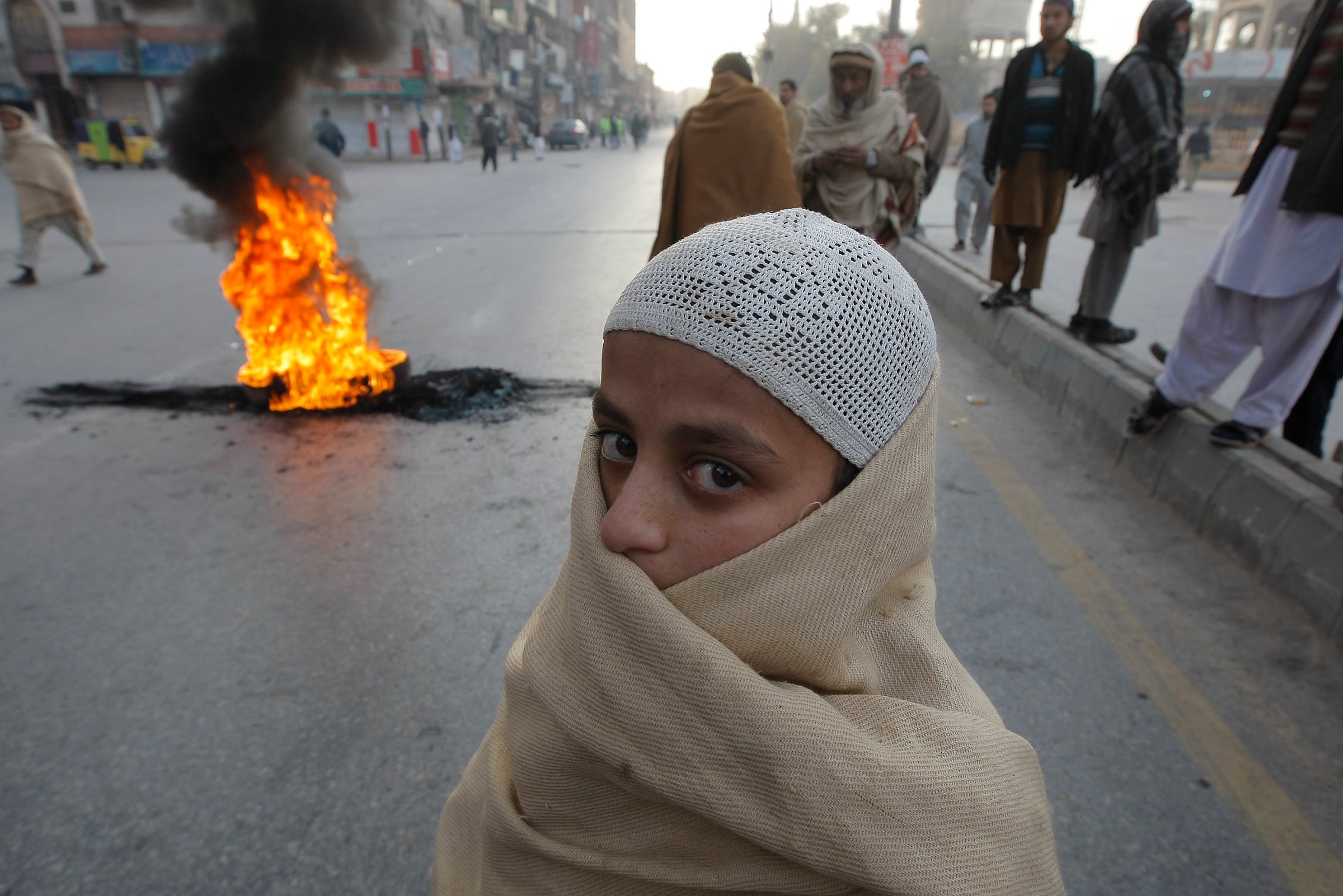
Two weeks after a Taliban attack on a local school killed 147 people, 136 of them children, the Pakistani city of Peshawar is still raw with grief and fear.
The capital city of the restive Khyber Pakhtunkhwa (or the North-West Frontier Province as it used to be known) often finds itself in the front line of the 10-year-old Taliban insurgency and has witnessed appalling bloodshed.
But the Dec. 16 attack on the Army Public School in Peshawar surpassed even those standards of horror. It was the worst single terrorist attack in the history of a country that, according to the Global Terrorism Index, is the world’s most affected by terrorism after Iraq and Afghanistan.
Authorities have beefed-up security in the face of the school carnage, and in response to threats of similar attacks from the Taliban. Checkpoints have been stepped up on roads into the city. Surprise swoops netted 1,200 suspected militants (though many were found innocent and subsequently freed) and more personnel have been assigned to guard the airport. Police have also created a One-Clink SOS app that lets a user alert the nearest 10 police stations in the event of a terrorist attack by touching a smartphone screen. But nobody feels reassured.
Peshawar mother Zubida Saleem said she would rather her children were illiterate than killed in their classroom. She has also changed their school.
“After hearing the rumors that terrorists were threatening all private schools, I stopped sending my children to a private school,” she said. “I am not at all satisfied with what the security forces do these days to eliminate terrorism from Pakistan.”
Saman, a Year 9 student at a private school in Peshawar, said that she is terrified by the thought of going to school. “It’s as if what happened on Dec. 16 happened at my school,” she tells TIME. “It could be my own friends and teachers being killed.”
Fear is also palpable at tertiary institutions. Professor Nasreen Ghufran, chair of the International Relations (IR) department at the University of Peshawar, tells TIME of the “mental stress, depression, anxiety and panic” that have set in, and of lax security.
“The security guards will do a body search of ordinary people but not of officials, which is an open violation of security rules,” she says. “My students are asking me if we can manage the security of our department by ourselves since the government has failed to give us security.”
For many, the only hope of living a life without fear lies in leaving the country. Nawaz Khan’s two sons were in the school attack. The younger son was killed, the elder was seriously wounded.
“My injured son is hospitalized and according to doctors his healing will take almost six months. He won’t be able to take his Year 9 exams. I am so stressed and worried,” he said, explaining that his family was not safe in Pakistan and that he wanted to emigrate. He appealed to the international community to provide asylum to his family.
Award-winning Rahimullah Yusufzai, who was born in the Khyber Pakhtunkhwa and considered an authority on its affairs, says more school attacks can be expected because educational institutions are far more vulnerable than police or military targets.
He added that “Though the armed forces have cleared various areas of North Waziristan Agency of militants, the Taliban’s top leadership is still secure and able to plan such terror attacks. The military has not conducted ground assaults in the Datta Khel and Shawal areas of the agency, where militants exercise their power freely.”
Yusufzai says that while in past some people were in favor of peace talks with Taliban, the school massacre has changed everything.
“The situation in the city is alarming and parents fear for their children,” he says. “The militants’ attack on the school shows that in the future the Taliban may attack other educational institutions, or markets, bus stands and public places because these are easy targets for them.”
More Must-Reads from TIME
- Donald Trump Is TIME's 2024 Person of the Year
- Why We Chose Trump as Person of the Year
- Is Intermittent Fasting Good or Bad for You?
- The 100 Must-Read Books of 2024
- The 20 Best Christmas TV Episodes
- Column: If Optimism Feels Ridiculous Now, Try Hope
- The Future of Climate Action Is Trade Policy
- Merle Bombardieri Is Helping People Make the Baby Decision
Contact us at letters@time.com